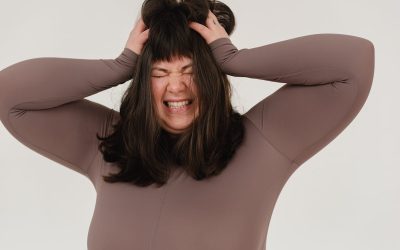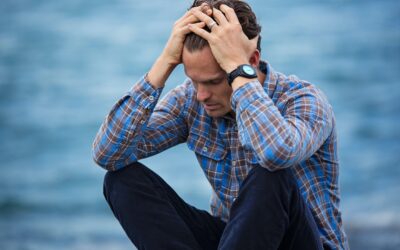Alopecia areata can be an incredibly challenging condition to tackle. If you or a loved one have been diagnosed with this autoimmune disorder which causes hair loss, it’s natural to search for guidance on how to cope, seek treatment, and possibly regain your hair.
Understanding and navigating your hair loss journey has its unique challenges, but fortunately, Dublin offers various ways of managing the condition and finding the necessary mental support. This blog focuses on understanding and managing alopecia areata, the different treatment options in Dublin, and the kind of support you can find locally.
Understanding Alopecia Areata
Alopecia areata is one of the most common causes of non-scaring (does not cause damage to the scalp) hair loss, affecting people of all ages. It usually starts with sudden hair loss in round or oval patches on the scalp or other body parts. The disorder comes about when the immune system mistakenly attacks the hair follicles, leading to hair loss.
In some people, hair loss may develop only in a few spots. In others, it might be more widespread or affect the entire body, including the scalp, face, and body (known as alopecia universalis).
Scientists are yet to pinpoint the exact cause of this autoimmune disorder. However, it is believed to involve a combination of genetics and environmental triggers. Some research has found associations between the condition and autoimmune disorders, such as thyroid disease and vitiligo.
Though the condition isn’t harmful and doesn’t usually indicate any other underlying medical conditions, coping with hair loss can challenge someone’s self-confidence and lifestyle.
Types of Alopecia Areata
Alopecia areata can manifest in several forms:
- Patchy Alopecia Areata: The most common form is characterised by one or more coin-sized hairless patches on the scalp or other body parts.
- Alopecia Totalis: This is a more advanced form of alopecia areata characterised by the complete loss of hair on the scalp.
- Alopecia Universalis: This is the most advanced form of alopecia, where hair loss occurs over the entire scalp and body, including eyebrows, eyelashes, and even pubic hair.
- Alopecia Ophiasis: A type of alopecia where hair loss occurs in a band-like pattern at the back and sides of the scalp.
- Diffuse Alopecia Areata: A less common form of alopecia areata, where hair loss occurs more diffusely over the scalp rather than as discrete bald patches.
The Impact of Alopecia Areata on Mental Health
Hair plays a significant role in how we perceive ourselves and how we believe others see us. As such, alopecia areata can have a profound psychological impact. It can cause negative body image and lowered self-esteem, leading to severe emotional responses such as anxiety, depression, and feelings of isolation.
Research shows that individuals with alopecia areata suffer a significant negative psychological impact, regardless of the severity. This psychological strain often correlates with the extent of hair loss and can decrease the individual’s quality of life.
Exploring these feelings is an essential part of managing alopecia areata comprehensively. But while all these feelings are valid and a normal response to changes in your physical appearance, you don’t have to let them severely affect your life.
Strategies for Emotional Coping
Here are some strategies that could help you manage the emotional impact of alopecia areata:
- Educate yourself about the condition: The more you know about alopecia areata, the less intimidating it becomes. It enables you to be proactive about your condition and have more control over your well-being.
- Practice self-compassion and acceptance: It’s essential to remember that your hair loss doesn’t define you. Your worth isn’t dictated by your physical appearance but by who you are as a person. Practising self-compassion through mindful awareness of self-talk can be an excellent way to counteract negative thoughts and feelings about hair loss.
- Connect with others in a similar situation: Support from others who have alopecia areata can be beneficial. Connecting and sharing your experiences can offer emotional support and first-hand insight into managing the condition.
- Consider cosmetic solutions: If hair loss impacts self-confidence, consider cosmetic options like wigs, scarves, or hairpieces. They can provide a way to regain some control over your appearance and boost your confidence as you navigate life with alopecia areata.
- Seek professional help: A mental healthcare professional, such as a psychologist or counsellor, can provide valuable insights and coping strategies tailored to your needs, enhancing your emotional well-being and resilience.
Treatment Options in Dublin
Alopecia areata can be tricky to treat due to its unpredictable nature. While there may not be a definitive cure, several treatment options are available to manage its effects.
Most therapies aim to slow down hair loss and stimulate hair growth. While these treatments don’t completely prevent hair loss from recurring, they may help hair grow back more quickly and ease the condition’s impact.
Medical Treatments
Dublin clinics like the Universal Hair and Scalp Clinic offer a wide array of medical treatment options for alopecia areata. They include:
Topical Steroids
These are first-line treatments for mild to moderate cases. They are applied directly to the scalp in the form of a cream, ointment, or lotion. The steroids work by reducing inflammation and suppressing the immune system, which can help to stimulate hair regrowth.
Intralesional Steroid Injections
This involves a specialist injecting a corticosteroid directly into the affected areas on the scalp. They are typically used for small patches of hair loss.
Immunotherapy
For severe cases of alopecia areata, a chemical is applied to the scalp to provoke an allergic reaction to divert the immune system from attacking the hair follicles.
Oral Corticosteroids
These might be prescribed for rapidly progressive or severe hair loss. However, due to potential side effects associated with long-term use, oral corticosteroids are typically used for short periods.
Topical Medications
Often used for male pattern baldness and female pattern hair loss, certain over-the-counter medications can also stimulate hair regrowth in individuals with alopecia areata.
Alternative and Complementary Treatments
Apart from the conventional medical remedies, some individuals with alopecia areata explore alternative and complementary methods:
Natural Remedies
Some people seek herbal and natural remedies, such as aloe vera, onion juice, and essential oils. While they might have benefits, remember that the scientific evidence supporting their efficacy is limited. Hence, exercise caution when using them. Additionally, it’s still best to consult a trichologist or dermatologist before using them.
Diet and Nutrition
Consuming a balanced diet rich in protein, vitamins, and minerals can help improve hair health and might aid hair regrowth. Foods rich in protein, iron, vitamin D, zinc, and antioxidants are believed to be particularly beneficial in maintaining hair health.
Although these treatments offer hope, none guarantee complete and permanent hair regrowth. It’s critical to consult a hair loss specialist before choosing a treatment path to weigh potential benefits and side effects.
Coping With Alopecia Areata: Support in Dublin
No one should face alopecia areata alone. In Dublin, a wide range of support systems for people dealing with the condition is available.
Individual Counselling
Talking to a professional, such as a psychologist or counsellor, can help you manage the emotional aspects of dealing with alopecia areata.
Support Groups
Joining a local support group can connect you with others who have the same experiences. For example, Alopecia Ireland provides an excellent platform for people with hair loss.
Online Forums
Online platforms offer a space to interact and share experiences with others going through similar challenges.
Local Events
Dublin offers numerous community programmes that can provide positive distractions and supplement your emotional coping strategies. Participating in these activities not only nurtures learning and networking but also contributes to the broader awareness of the condition.
In conclusion, living with alopecia areata can be an uphill battle, but the ride can feel much less daunting with the right hair loss treatments and support. There is no denying that the diverse range of treatments offers hope for hair regrowth and management of the condition.
Additionally, the emotional aspect of alopecia should not be underestimated. Seeking support through local groups, counselling, or online communities can provide a lifeline for those grappling with self-esteem and emotional well-being.
Ultimately, effectively coping with alopecia areata requires a multifaceted approach that encompasses medical treatments, emotional support, and a sense of community. Exploration and self-compassion are key to preventing this condition from controlling your life. It is equally important to see a hair loss specialist, like a trichologist, early on.
When faced with hair thinning or balding, every step you take towards acceptance is a victory. Remember, although we can’t change the direction of the wind, we can adjust our sails.
Don’t let hair loss hold you back. Connect with the compassionate, experienced team at Universal Hair and Scalp Clinic to start your journey towards effective alopecia areata management. Call us today on +353 (0)1 6793618 to schedule an appointment with our experienced trichologist.
Royalty-free image supplied from Pexels as part of the SEO service from 3R



